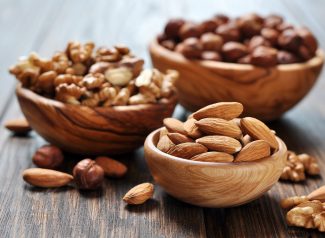
Low-calorie or Low-fat: Which is Better for Weight Loss?
The low-fat-versus-low-carb-diet-regimen has been one of the greatest debates in the history of health and nutrition. Up until a few years ago, low-fat diets were all the rage. The paradigm gradually shifted to low-carb diets. There are a multiplicity of factors that determine whether a diet will be effective for weight loss or not. If the foods you’re consuming don’t taste good, chances are the diet will crash; if you’re not feeling full or satiated, chances are you might binge

Let’s analyze the low-carb camp. A dietitian and professor of human sciences at The Ohio State University postulates that “As evidenced from multiple recent meta-analyses, studies consistently show that on average a low-carbohydrate diet does better than a low-fat diet in terms of weight loss and fat loss, and several cardio-metabolic markers”. He goes on to say that this particular diet provides people with greater satiety, hence, they don’t fill up as much. Additionally, devotees of this meal plan have been shown to have better HDL cholesterol and triglyceride values. Evidently, low-carb diets go a long way in preventing cardiovascular diseases (particularly blood pressure), as well as diabetes. The flip side of this diet is that it affords gym-goers less energy in the gym. A shortage of carbohydrates will leave you fatigued and weaker. It may seem counter-intuitive, but it would be an intelligent idea to stock up your body with some carbs, like yogurt and fruit, before hitting the gym. This would consequently maximize your performance and result in you losing more weight in the long run.

Now let’s peek over and take a look at the other side of the fence. Mathematically, low fat-fat diets should be more effective, because one gram of fat is worth 9 calories, whereas the same weight of carbs are only 4 calories. This diet plan is ideal if you still want to consume a variety of foods. In this way, you can still go for lean meat and fish, as well as your favorite fruits and vegetables, without a guilty conscience. Some healthy fats also help sustain insulin levels, allowing you to feel satiated after a meal.

‘Healthfulness’ is another factor to be considered. Both low-fat and low carb diets can be either healthy or unhealthy, depending on what you eat, precisely. For example, often-times, companies that brand their food items as ‘low-fat’ compensate by loading them with sugar. What ends up happening is that customers will be duped into thinking that it’s low in fat, therefore it must be healthy, but in all actuality, it has an obscene amount of calories in the sugar needed to make the ‘low-fat’ treat taste good. ‘Low-fat’ yogurts are a prime example of this. A 20-ounce cup could contain up to 500 calories, with minimum nutritional benefit. That’s shooting your diet in the foot. Moreover, some foods rich in monounsaturated fats (the healthy kind), can actually help dieting goals by filling you up faster, meaning you’ll eat less food otherwise. In case you’re interested, foods rich in monounsaturated fats include fish, particular salmon, avocadoes and nuts.

Studies have demonstrated that, ceteris paribus, low-carb diets usually produce better results within the first 3 to 6 months. After that, the difference is negligible. However, one finding that keeps coming up over and over again is that the key factor is a ‘low- calorie diet’, irrespective of whether you’re cutting down on carbs or fats. In the words of Lisa Young, Ph.D., author of The Portion Teller Plan, “Ultimately, weight loss is about calorie intake. If you take in fewer calories each day, you will slim down.

